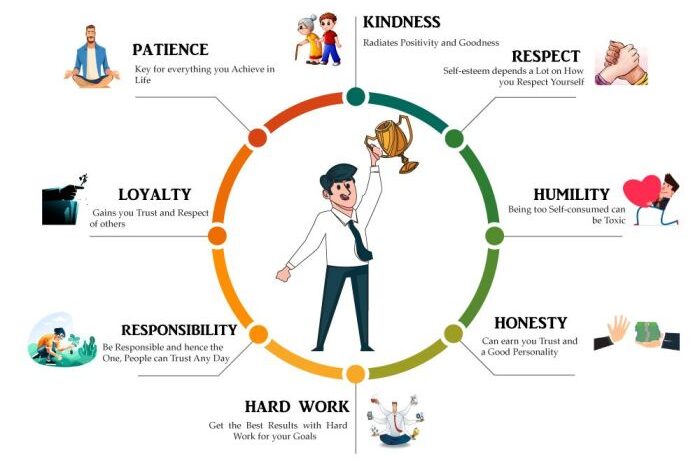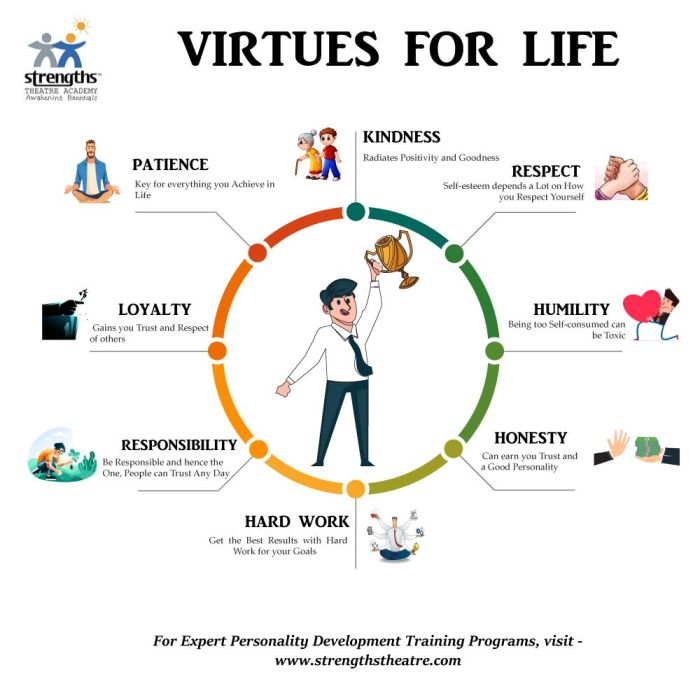
Different Valuations of Life: A Multifaceted Perspective
Different valuations of life, a topic that has captivated philosophers, economists, and everyday individuals alike, delves into the complex and multifaceted ways we assign worth to human existence. From the abstract principles of ethical frameworks to the tangible realities of economic valuations, the question of what constitutes a life worth living and how we measure its value remains a constant source of debate and introspection.
This exploration ventures into the historical evolution of philosophical perspectives, dissects the intricate interplay between societal norms and economic realities, and examines the ethical quandaries that arise in medical and legal contexts. It delves into the diverse cultural and religious lenses through which we perceive life’s sanctity, and ultimately, it recognizes the profound influence of personal experiences and values in shaping our individual understanding of life’s worth.
Philosophical Perspectives on Life Valuation
The question of life’s value has been a central concern for philosophers throughout history, with diverse perspectives emerging over time. From ancient Greek thinkers to modern existentialists, various philosophical schools have grappled with the inherent worth of human existence and the ethical implications of such valuations.This exploration delves into the historical evolution of philosophical views on life valuation, examines prominent ethical frameworks in relation to this topic, and analyzes arguments for and against the inherent value of human life.
Historical Evolution of Philosophical Views on Life Valuation
Philosophical perspectives on life valuation have evolved significantly over time, reflecting changing societal values and intellectual currents.
- Ancient Greek Philosophy:Early Greek philosophers like Socrates, Plato, and Aristotle emphasized the importance of virtue and reason in living a good life. While not explicitly addressing the inherent value of life, their philosophies implied that a life lived virtuously was inherently valuable.
- Medieval Philosophy:During the Middle Ages, Christian theology dominated philosophical discourse. Theological views emphasized the inherent sanctity of human life as created in the image of God, leading to a strong emphasis on the moral obligation to protect life.
- Enlightenment and Modern Philosophy:The Enlightenment brought about a shift towards human reason and individual autonomy. Philosophers like John Locke and Jean-Jacques Rousseau championed individual rights and liberties, contributing to the development of modern concepts of human dignity and the inherent value of human life.
- Existentialism and Nihilism:In the 20th century, existentialist and nihilist philosophies challenged traditional views on life valuation. Existentialists like Jean-Paul Sartre emphasized individual freedom and responsibility, arguing that life has no inherent meaning but is defined by individual choices. Nihilistic perspectives, on the other hand, often reject the notion of inherent value in life, seeing existence as ultimately meaningless.
Ethical Frameworks and Life Valuation
Ethical frameworks provide a framework for understanding and evaluating moral dilemmas, including those related to life valuation. Three prominent ethical frameworks, utilitarianism, deontology, and virtue ethics, offer distinct perspectives on the value of life.
- Utilitarianism:Utilitarianism, championed by Jeremy Bentham and John Stuart Mill, emphasizes maximizing overall happiness or well-being. This framework suggests that actions are morally right if they produce the greatest good for the greatest number of people. In the context of life valuation, utilitarianism might prioritize actions that save the most lives or enhance overall societal well-being, even if it means sacrificing individual lives in some cases.
- Deontology:Deontological ethics, associated with Immanuel Kant, focuses on moral duties and principles. This framework emphasizes the inherent worth of individuals and the importance of respecting their rights and autonomy. Deontological ethics would argue against actions that violate these principles, even if they might produce a greater overall good.
- Virtue Ethics:Virtue ethics, developed by Aristotle, emphasizes the development of character and virtuous traits. This framework suggests that moral actions are those that reflect virtuous character, such as compassion, honesty, and justice. In the context of life valuation, virtue ethics would likely emphasize the importance of treating all individuals with respect and dignity, regardless of their circumstances.
Arguments for and Against the Inherent Value of Human Life
The question of whether human life possesses inherent value has been a subject of ongoing debate.
- Arguments for Inherent Value:Proponents of the inherent value of human life often cite the unique qualities of human beings, such as their capacity for reason, morality, and creativity. They argue that these qualities make human life intrinsically valuable, regardless of its usefulness or contribution to society.
- Arguments Against Inherent Value:Opponents of the inherent value of human life often point to the arbitrariness of assigning such value to a particular species. They argue that human life is no more or less valuable than other forms of life, and that attributing inherent value to humans is anthropocentric and unjustified.
Economic and Societal Valuations of Life

The valuation of human life is a complex and multifaceted issue, with significant implications for policy decisions, legal judgments, and individual choices. While it’s impossible to assign a definitive monetary value to a human life, various economic and societal frameworks attempt to quantify its worth.
It’s easy to say that all lives are equal, but the reality is that different cultures and societies often place different valuations on life. This becomes particularly stark when examining conflicts like the Middle East conflict , where historical grievances, religious beliefs, and political ideologies can all contribute to a complex web of competing priorities.
Ultimately, understanding these varying perspectives is crucial for finding a path towards peace and recognizing the shared humanity we all possess.
These valuations often reflect underlying societal values, economic realities, and cultural perspectives.
Human Capital and Life Valuation
The economic concept of human capital views individuals as assets with a specific value based on their potential future earnings. This approach considers the economic contributions a person is expected to make throughout their lifetime. Human capital valuation plays a role in determining compensation for lost wages in wrongful death cases, as well as in cost-benefit analyses of public health programs and safety regulations.
Human capital = Present value of future earnings
For instance, a young, highly educated individual with a promising career trajectory may have a higher human capital value than an older person with a lower earning potential. This approach, however, has been criticized for neglecting the non-economic contributions of individuals and for potentially undervaluing the lives of those with lower earning potential, such as the elderly, disabled, or unemployed.
Insurance and Legal Settlements
Insurance policies, particularly life insurance, are a direct example of assigning a monetary value to life. Life insurance premiums are calculated based on factors like age, health, and lifestyle, and the payout is intended to compensate for the financial loss suffered by beneficiaries upon the insured’s death.
This system, while financially beneficial, raises ethical questions about commodifying human life and the potential for inequity based on individual risk profiles. Legal settlements in wrongful death cases also involve assigning monetary values to lost lives. These settlements typically consider factors such as the victim’s age, earning potential, and pain and suffering endured.
The amount awarded in such cases can vary significantly based on legal precedents, jury decisions, and the negotiating power of parties involved.
It’s fascinating how different cultures value life. Some prioritize individual liberty, while others place collective security above all else. This stark contrast is perhaps most evident when we consider the situation in north korea and nuclear weapons , where the government’s actions seem to prioritize national survival over the lives of its own citizens.
It makes you wonder if the concept of “value” itself changes depending on the context, or if there are universal principles we can all agree on.
Societal Factors Influencing Life Valuation
The way societies value life is influenced by a multitude of factors, including cultural norms, religious beliefs, economic circumstances, and political ideologies.
- Cultural Norms:Some cultures place a higher value on individual life than others. For example, in some collectivist societies, the well-being of the community may take precedence over individual rights.
- Religious Beliefs:Religious doctrines often shape societal views on the sanctity of life and the afterlife. Some religions hold a strong belief in the sanctity of life, while others may view death as a natural part of the cycle of life.
- Economic Circumstances:Societies with limited resources may prioritize the allocation of resources to those deemed most valuable to the economy, potentially leading to disparities in life valuation based on economic status.
- Political Ideologies:Political systems and ideologies can influence the value placed on human life. For instance, socialist ideologies often emphasize social equality and the collective good, while individualistic ideologies may prioritize individual rights and liberties.
Medical and Ethical Considerations
The valuation of life takes on a profound dimension in the context of medical and ethical considerations, particularly when dealing with life-sustaining treatments, end-of-life care, and organ donation. These situations raise complex ethical dilemmas that challenge our understanding of human dignity, autonomy, and the role of medical intervention in the face of mortality.
Life-Sustaining Treatments and End-of-Life Care
Life-sustaining treatments, such as mechanical ventilation, dialysis, and artificial nutrition, can prolong life but may also impose significant burdens on the patient and their family. End-of-life care, on the other hand, focuses on providing comfort and support to patients facing a terminal illness.
The ethical dilemmas surrounding these areas arise from the need to balance the patient’s right to autonomy with the physician’s duty to provide care.
- Advance Directives:Advance directives, such as living wills and durable powers of attorney for healthcare, allow individuals to express their wishes regarding medical treatment in the event they become incapacitated. These documents can help ensure that patients’ preferences are respected, even when they are unable to communicate them directly.
- Futility:The concept of medical futility refers to situations where treatments are unlikely to achieve their intended goal or may impose excessive burdens on the patient. In such cases, physicians may face ethical dilemmas regarding whether to continue or withdraw life-sustaining treatments.
- Palliative Care:Palliative care focuses on relieving suffering and improving quality of life for patients with serious illnesses. It emphasizes pain management, symptom control, and emotional support. Palliative care is often provided alongside curative treatments, but it can also be the primary focus of care in the final stages of life.
Quality of Life and Medical Decision-Making
The concept of quality of life plays a crucial role in medical decision-making, particularly when considering life-sustaining treatments and end-of-life care. Quality of life refers to the subjective experience of well-being and can be influenced by physical health, mental health, social relationships, and personal values.
- Subjectivity:Quality of life is highly subjective and can vary significantly between individuals. What constitutes a good quality of life for one person may not be the same for another.
- Objective Measures:While quality of life is subjective, there are objective measures that can be used to assess it, such as physical function, pain levels, and cognitive abilities. These measures can provide a framework for understanding the patient’s experience, but they cannot fully capture the subjective dimension of quality of life.
It’s fascinating how we place different values on life, from the pricelessness of a child’s innocence to the calculated risks we take in our financial choices. But what happens when those choices, like the burden of debt and the effect on children , cast a shadow over that innocence?
It’s a stark reminder that our valuations of life can be both deeply personal and profoundly influenced by the weight of our actions.
- Decision-Making:When making medical decisions, it is important to consider the patient’s values and preferences regarding quality of life. This may involve discussions about their goals, fears, and hopes for the future.
Organ Donation and Transplantation
Organ donation and transplantation raise complex ethical considerations related to the allocation of scarce resources, the potential for exploitation, and the respect for human dignity.
- Consent:Organ donation is a selfless act that requires informed consent from the donor or their family. It is essential to ensure that consent is freely given and that the donor understands the risks and benefits involved.
- Allocation:The allocation of organs for transplantation is a challenging process that requires careful consideration of factors such as medical urgency, tissue match, and waiting time. Ethical principles such as fairness, justice, and non-discrimination should guide the allocation process.
- Exploitation:There is a concern that organ donation may be exploited, particularly in developing countries where individuals may be pressured or incentivized to donate their organs. It is essential to ensure that organ donation is a voluntary act and that donors are not subjected to coercion or exploitation.
Political and Legal Implications
The valuation of life is deeply intertwined with the political and legal frameworks that govern our societies. These frameworks establish the boundaries of acceptable behavior, determine the consequences of actions, and shape the very notion of justice. Examining the legal frameworks surrounding homicide, euthanasia, and assisted suicide, as well as the role of government in regulating and protecting human life, reveals the complex interplay between societal values and the legal system.
Legal Frameworks Surrounding Homicide, Euthanasia, and Assisted Suicide
The legal frameworks surrounding homicide, euthanasia, and assisted suicide reflect the evolving societal attitudes towards the sanctity of life, individual autonomy, and the role of the state in life-and-death decisions.
- Homicide: The legal definition of homicide varies across jurisdictions, but generally encompasses the unlawful killing of another human being. Murder, the most serious form of homicide, often involves malice aforethought, while manslaughter, a less severe offense, typically involves recklessness or negligence.
The legal framework surrounding homicide aims to deter violence, protect individuals from harm, and ensure that perpetrators are held accountable for their actions.
- Euthanasia: Euthanasia, or mercy killing, refers to the act of intentionally ending a life to relieve pain and suffering. Legal frameworks surrounding euthanasia vary significantly. Some countries, such as the Netherlands and Belgium, have legalized euthanasia under specific conditions, including terminal illness and unbearable suffering.
Other countries, such as the United States, have laws prohibiting euthanasia, though some states allow for medical aid in dying, a form of assisted suicide.
- Assisted Suicide: Assisted suicide involves providing a person with the means to end their own life. Legal frameworks surrounding assisted suicide are similarly diverse. Some countries, such as Switzerland, have legalized assisted suicide, while others, such as the United Kingdom, have laws prohibiting it.
The legal debates surrounding euthanasia and assisted suicide often center on issues of individual autonomy, the right to die with dignity, and the potential for abuse.
The Role of Government in Regulating and Protecting Human Life
Governments play a crucial role in regulating and protecting human life. This role encompasses a wide range of activities, including:
- Enacting and enforcing laws: Governments establish legal frameworks that define acceptable behavior and protect individuals from harm. These laws cover a wide range of issues, including homicide, assault, negligence, and public safety.
- Providing public services: Governments provide essential services, such as healthcare, education, and social welfare programs, that contribute to the well-being and longevity of individuals.
- Protecting vulnerable populations: Governments have a responsibility to protect vulnerable populations, such as children, the elderly, and those with disabilities, from exploitation and harm.
- Promoting public health: Governments play a key role in promoting public health by implementing policies aimed at preventing disease, promoting healthy lifestyles, and ensuring access to essential healthcare services.
The Impact of Social Policies on the Value Placed on Different Lives
Social policies can have a profound impact on the value placed on different lives. For example, policies that allocate resources based on age, health status, or socioeconomic factors can inadvertently create hierarchies of value.
- Healthcare allocation: Policies that prioritize healthcare resources for certain groups, such as the elderly or those with chronic illnesses, may be perceived as devaluing the lives of others.
- Social safety nets: Policies that provide inadequate support for marginalized groups, such as the homeless or those living in poverty, can contribute to a perception that their lives are less valuable.
- Criminal justice system: Disparities in sentencing and incarceration rates based on race, ethnicity, or socioeconomic status can reflect a societal devaluation of certain lives.
Cultural and Religious Perspectives: Different Valuations Of Life
The valuation of life is deeply intertwined with cultural and religious beliefs, shaping how individuals and societies perceive the meaning and sanctity of existence. Different cultures and religions hold diverse views on the origins of life, the purpose of existence, and the afterlife, all of which influence their understanding of life’s value.
Impact of Cultural Beliefs and Traditions
Cultural beliefs and traditions play a significant role in shaping the valuation of life. For instance, in some cultures, life is seen as a sacred gift, while in others, it is viewed as a cyclical process of birth, death, and rebirth.
These beliefs influence attitudes towards death, dying, and end-of-life care.
- Individualism vs. Collectivism:Individualistic cultures tend to emphasize personal autonomy and self-reliance, which can lead to a higher valuation of individual life. In contrast, collectivist cultures prioritize the well-being of the group, and individual life may be valued less in comparison to the needs of the community.
- Honor and Shame Cultures:In honor cultures, life is highly valued as it is seen as a reflection of one’s family and community. Acts that bring dishonor to the family or community can result in severe consequences, even death. In shame cultures, the preservation of face and social harmony is paramount, and actions that bring shame to the individual or family are strongly discouraged.
- Religious Beliefs:Religious beliefs can significantly influence the valuation of life. Some religions, such as Christianity and Islam, emphasize the sanctity of life and the belief that life is a gift from God. Others, such as Buddhism, focus on the impermanence of life and the cycle of rebirth.
Role of Spiritual Beliefs
Spiritual beliefs can shape individual perspectives on the meaning and value of life. For some, the belief in an afterlife or a higher power provides a sense of purpose and meaning, even in the face of suffering or death. Others find meaning in their relationships with others, their contributions to society, or their pursuit of personal growth.
“The meaning of life is to find your gift. The purpose of life is to give it away.”
Pablo Picasso
Personal and Individual Experiences
The value we place on life is profoundly shaped by our individual journeys, the tapestry woven from our personal experiences, values, and beliefs. Each of us carries a unique narrative, a collection of moments that have molded our understanding of life’s meaning and worth.
These personal experiences, ranging from the mundane to the extraordinary, contribute to our subjective perception of life’s value.
The Subjective Nature of Life Valuation
Life valuation is inherently subjective, reflecting the individual’s unique perspective and the tapestry of their experiences. Two individuals facing the same situation might arrive at vastly different conclusions about the value of life. This subjectivity arises from a confluence of factors, including:
- Personal Values:Our core values, such as family, freedom, or purpose, influence how we perceive life’s worth. For someone who deeply values family, the loss of a loved one could significantly diminish their perception of life’s value, while for someone who prioritizes personal freedom, the loss of autonomy might have a similar impact.
- Past Experiences:Our past experiences, both positive and negative, shape our outlook on life. A person who has experienced significant hardship might value life more deeply, having witnessed its fragility and preciousness. Conversely, someone who has enjoyed a life of relative ease might have a different perspective on life’s value.
- Cultural and Religious Influences:Cultural norms and religious beliefs can also influence how individuals perceive life’s value. Some cultures may emphasize the importance of life continuation, while others may focus on the significance of individual experiences.
- Personal Beliefs:Our beliefs about the nature of life, death, and the afterlife can profoundly influence our valuation of life. Someone who believes in an afterlife might view death as a transition rather than an end, potentially affecting their perception of the value of earthly life.
The Impact of Personal Loss, Trauma, and Suffering, Different valuations of life
Personal loss, trauma, and suffering can profoundly impact an individual’s perception of life’s value. The experience of grief, loss, and trauma can lead to a heightened awareness of life’s fragility and a re-evaluation of its meaning.
- Loss of a Loved One:The loss of a loved one can significantly alter an individual’s perspective on life’s value. The pain of grief can lead to a profound appreciation for the preciousness of life and the importance of relationships.
- Trauma:Experiencing trauma can lead to a shift in an individual’s perception of safety and security. This can result in a heightened awareness of life’s fragility and a re-evaluation of what is truly important.
- Suffering:Enduring prolonged suffering can lead to a questioning of life’s meaning and purpose. Individuals who have faced significant challenges may develop a stronger sense of resilience and a deeper appreciation for the value of life, even in the face of adversity.






